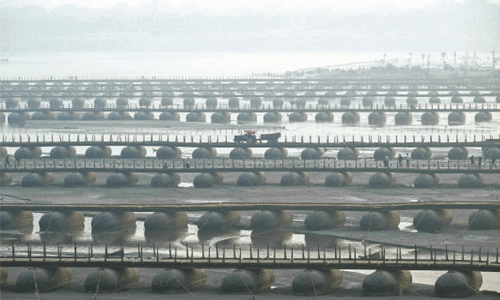
TEHRAN: Iran has launched its own video-sharing website to compete against Google's popular YouTube whose content is deemed inappropriate by the Islamic regime, the state television reported on Sunday.
The website (http://www.mehr.ir) called 'Mehr', meaning affection in Farsi, aims to attract Persian-speaking users and also promote Iranian culture, according to its About Us page.
“From now on, people can upload their short films on the website and access (IRIB) produced material,” said IRIB deputy chief Lotfollah Siahkali.
A Facebook page dedicated to Mehr is providing links to some of its content, including music clips produced in Iran.
Iran has consistently censored YouTube since mid-2009, in the wake of the disputed elections that returned President Mahmoud Ahmadinejad to power.
It has also been trying to stop its population accessing a number of foreign websites authorities see as undermining the Islamic regime, including popular social networking sites Facebook and Twitter, as well as the online pages of many Western media outlets, blogs, and pornographic hubs.
The United States accuses Iran of seeking to implement an “electronic curtain” to cut its citizens off from the world. It has imposed sanctions on the regime involved in the censorship.
The announcement came amid first steps by the country to establish a walled-off national intranet separate from the worldwide Internet.
Iran is working on rolling out its national intranet that it says will be clean of un-Islamic content. Authorities claim the “National Internet” would not cut access to the Internet.
Many web users in Iran - half of whose 75-million strong population is connected - are used to getting around the censorship through the use of software known as a Virtual Private Network (VPN), whose sale is illegal in Iran.













































